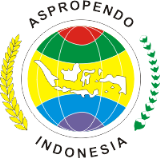THE IMPACT OF ENTREPRENEURIAL EDUCATION, VOCATIONAL SKILLS AND ENTREPRENEURIAL MOTIVATION TOWARD ENTREPRENEURIAL INTEREST
DOI:
https://doi.org/10.23917/jpis.v35i1.10214Keywords:
entrepreneurial education, vocational skills, entrepreneurial motivation, entrepreneurial interestAbstract
This research explores the impact of entrepreneurial learning, vocational skills and motivation in entrepreneurship on entrepreneurial interest of tourism, hospitality and engineering students at Universitas Negeri Padang. Using a quantitative research methodology, data was collected using a structured survey involving 43 students. The findings indicate that entrepreneurial interest is significantly and positively influenced by entrepreneurship education, vocational competence, and entrepreneurial motivation. Statistical analysis showed a high level of explanatory power, with a significance level of p = 0.000 and an adjusted R² value of 0.704, indicating a strong model fit. These results shows that education and skills training are crucial for increasing students entrepreneurial interest. This study underscores the need for higher education institutions, particularly in Indonesia, to strengthen entrepreneurship curricula, enhance vocational training, and foster motivational factors to better prepare students for entrepreneurial careers. By identifying the key drivers of entrepreneurial interest, this research contributes to the design of more effective educational strategies and policy interventions aimed at promoting youth entrepreneurship across different academic fields.
Downloads
References
Allen, E. R. (2016). Analysis of Trends and Challenges in the Indonesian Labor Market. https://www.adb.org/publications/analysis-trends-and-challengesindonesian-labor-market.
Aranzabal, A., Epelde, E., & Artetxe, M. (2022). Team Formation on The Basis of Belbin’s Roles to Enhance Students’ Performance in Project Based Learning. Education for Chemical Engineers, 38(December 2020), 22–37. https://doi.org/10.1016/j.ece.2021.09.001.
Bahl, A., & Dietzen, A. (2019). Work-based Learning as a Pathway to Competence based Education. In Management (Issue April). https://www.mmulder.nl/wpcontent/uploads/2011/11/2019-Mulder-Global-Need-for-Competence.pdf.
Baumol, W. J. (2011). Economics and Entrepreneurship. In World Encyclopedia of Entrepreneurship. Edward Elgar Publishing. https://doi.org/10.4337/9781849808453.00012.
Billett, S. (1994). Searching for Authenticity: A Socio‐Cultural Perspective of Vocational Skill Development. Vocational Aspect of Education, 46(1), 3–16. https://doi.org/10.1080/0305787940460102.
Blesia, J. U., Iek, M., Ratang, W., & Hutajulu, H. (2021). Developing an Entrepreneurship Model to Increase Students’ Entrepreneurial Skills: an Action Research Project in a Higher Education Institution in Indonesia. Systemic Practice and Action Research, 34(1), 53–70. https://doi.org/10.1007/s11213-019-09506-8.
Carsrud, A., & Brännback, M. (2011). Entrepreneurial Motivations: What Do We Still Need to Know? Journal of Small Business Management, 49(1), 9–26. https://doi.org/10.1111/j.1540-627X.2010.00312.x.
Cohen. (2013). Applied Multiple Regression/Correlation Analysis for the Behavioral Sciences. Routledge. https://doi.org/10.4324/9780203774441.
Creswell, J. W., & Creswell, J. D. (2017). Research Design: Qualitative, Quantitative, and Mixed Methods Approaches. Sage publications. https://psycnet.apa.org/record/1996-97121-000.
Dewi, F. K., Yulastri, A., Jalinus, N., Ganefri, & Mardizal, J. (2024). The Impact of Entrepreneurship Education, Emotional Quotient and Parental Support on Students’ Entrepreneurial Interest. Jurnal Pendidikan Ilmu Sosial, 34(1), 106–117. https://journals2.ums.ac.id/index.php/jpis/article/view/4869/1574.
Dude, S. A. (2023). Psychological Characteristics and Social Entrepreneurial Intentions: A Study among Accounting Education Students in Indonesia. Jurnal Pendidikan Ilmu Sosial, 33(2), 152–168. https://journals2.ums.ac.id/index.php/jpis/article/download/3148/1026.
Duran-Sanchez, A., Alvarez García, J., Del Río-Rama, M. de la C., & Ratten, V. (2019). Trends and Changes in the International Journal of Entrepreneurial Behaviour & Research. International Journal of Entrepreneurial Behavior & Research, 25(7), 1494–1514. https://doi.org/10.1108/IJEBR-04-2019-0249.
Fan, J., Hu, J., & Wang, J. (2024). How Entrepreneurship Education Affects College Students’ Entrepreneurial Intention: Samples from China. Heliyon, 10(10), e30776. https://doi.org/10.1016/j.heliyon.2024.e30776.
Gibb, A. A. (1993). Enterprise Culture and Education. International Small Business Journal: Researching Entrepreneurship, 11(3), 11–34. https://doi.org/10.1177/026624269301100301.
Hair, J. F. (2011). Multivariate Data Analysis: An Overview. In International Encyclopedia of Statistical Science (pp. 904–907). Springer Berlin Heidelberg. https://doi.org/10.1007/978-3-642-04898-2_395.
He, L., Zheng, L. J., Sharma, P., & Leung, T. Y. (2024). Entrepreneurship Education and Established Business Activities: An International Perspective. International Journal of Management Education, 22(1), 100922. https://doi.org/10.1016/j.ijme.2023.100922.
Knox, S. (2022). Fostering Student Engagement in Virtual Entrepreneurship Education Environments. International Journal of Management Education, 20(3), 100705. https://doi.org/10.1016/j.ijme.2022.100705.
Krueger, N. F., Reilly, M. D., & Carsrud, A. L. (2000). Competing Models of Entrepreneurial Intentions. Journal of Business Venturing, 15(5), 411–432. https://doi.org/10.1016/S0883-9026(98)00033-0.
Kuratko, D. F. (2011). Entrepreneurship Theory, Process, and Practice in the 21st Century. International Journal of Entrepreneurship and Small Business, 13(1), 8–17. https://doi.org/10.1504/IJESB.2011.040412.
Lekoko, E, M. R., & P, R. (2012). The Effectiveness of Entrepreneurship Education: What Matters Most? African Journal of Business Management, 6(51), 12023–12032. https://doi.org/10.5897/ajbmx12.001.
Locke, E. A., & Robert Baum, J. (2014). Entrepreneurial Motivation. The Psychology of Entrepreneurship, 93–112. https://doi.org/10.2307/j.ctvh8r2zz.8.
Mambali, E. R., Kapipi, M. S., & Changalima, I. A. (2024). Entrepreneurship Education and Business and Science Students’ Green Entrepreneurial Intentions: The Role of Green Entrepreneurial Self-Efficacy and Environmental Awareness. International Journal of Management Education, 22(2), 100987. https://doi.org/10.1016/j.ijme.2024.100987.
Motta, V. F., & Galina, S. V. R. (2023). Experiential Learning in Entrepreneurship Education: A Systematic Literature Review. Teaching and Teacher Education, 121. https://doi.org/10.1016/j.tate.2022.103919.
Musyarofah, I. N. A., Wulandari, S. S., & Diah, M. L. B. M. (2024). The Effect of Creative Project Learning Outcomes and Entrepreneurship on Entrepreneurial Interest Through Internal Locus of Control. Jurnal Pendidikan Ilmu Sosial, 34(1), 1–18. https://journals2.ums.ac.id/index.php/jpis/article/view/4909/1542.
Nabi, G., Walmsley, A., Mir, M., & Osman, S. (2024). The Impact of Mentoring in Higher Education on Student Career Development: A Systematic Review and Research Agenda. Studies in Higher Education, 16(2), 277–299. https://doi.org/10.1080/03075079.2024.2354894.
Nowiński, W., Haddoud, M. Y., Lančarič, D., Egerová, D., & Czeglédi, C. (2019). The Impact of Entrepreneurship Education, Entrepreneurial Self-Efficacy and Gender on Entrepreneurial Intentions of University Students in The Visegrad Countries. Studies in Higher Education, 44(2), 361–379. https://doi.org/10.1080/03075079.2017.1365359.
Özdamli, F. (2011). The Experiences of Teacher Candidates in Developing Instructional Multimedia Materials in Project Based Learning. Procedia - Social and Behavioral Sciences, 15, 3810–3820. https://doi.org/10.1016/j.sbspro.2011.04.378.
Piperopoulos, P., & Dimov, D. (2015). Burst Bubbles or Build Steam? Entrepreneurship Education, Entrepreneurial Self-Efficacy, and
Entrepreneurial Intentions. Journal of Small Business Management, 53(4), 970–985. https://doi.org/10.1111/jsbm.12116.
Pruthi, S., & Mitra, J. (2017). Special Issue on ‘Migrant and Transnational Entrepreneurs: International Entrepreneurship and Emerging Economies’. Journal of Entrepreneurship and Innovation in Emerging Economies, 3(2), 148–154. https://doi.org/10.1177/2393957517721992.
Rahayu, S., Rizky, M., Ratumbuysang, M. F. N. G., & Hasanah, M. (2023). Improving Innovative Behavior Through Entrepreneurship Education in Economic Education Students Lambung Mangkurat University. Jurnal Pendidikan Ilmu Sosial, 33(2), 264-275. https://journals2.ums.ac.id/index.php/jpis/article/download/3395/1054.
Rosenthal, A., Maciel Guedes, A. M., dos Santos, K. M. O., & Deliza, R. (2021). Healthy Food Innovation in Sustainable Food System 4.0: Integration of Entrepreneurship, Research, And Education. Current Opinion in Food Science,42, 215–223. https://doi.org/10.1016/j.cofs.2021.07.002.
Sahut, J.-M., & Peris-Ortiz, M. (2014). Small Business, Innovation, and Entrepreneurship. Small Business Economics, 42(4), 663–668. https://doi.org/10.1007/s11187-013-9521-9.
Somià, T., Lechner, C., & Pittaway, L. (2024). Assessment and Development of Coachability in Entrepreneurship Education. International Journal of Management Education, 22(1). https://doi.org/10.1016/j.ijme.2023.100921.
Souitaris, V., Zerbinati, S., & Al-Laham, A. (2007). Do Entrepreneurship Programmes Raise Entrepreneurial Intention of Science and Engineering Students? The Effect of Learning, Inspiration and Resources. Journal of Business Venturing, 22(4), 566–591. https://doi.org/10.1016/j.jbusvent.2006.05.002.
Sugiyono, S. (2021). The Evaluation of Facilities and Infrastructure Standards Achievement of Vocational High School in the Special Region of Yogyakarta. Jurnal Penelitian Dan Evaluasi Pendidikan, 25(2), 207–217. https://doi.org/10.21831/pep.v25i2.46002.
Susanto, S., Muafiah, E., Desrani, A., Ritonga, A. W., & Hakim, A. R. (2022). Trends of Educational Technology (EdTech): Students’ Perceptions of Technology to Improve the Quality of Islamic Higher Education in Indonesia. International Journal of Learning, Teaching and Educational Research, 21(6), 226–246. https://doi.org/10.26803/ijlter.21.6.14.
Tambunan, T. T. H. (2022). Recent Development of Micro, Small and Medium Enterprises in Indonesia. International Journal of Social Sciences and Management Review, 06(01), 193–214. https://doi.org/10.37602/ijssmr.2022.6112.
Venesaar, U., Kolbre, E., & Piliste, T. (2006). Students’ Attitudes and Intentions Toward Entrepreneurship at Tallinn University of Technology. Tutwpe, May, 97–114. https://www.researchgate.net/publication/24137730.
Viaggi, D., Barrera, C., Castelló, M. L., Dalla Rosa, M., Heredia, A., Hobley, T. J., Knöbl, C. F., Materia, V. C., Xu, S. M., Romanova, G., Russo, S., Seguí, L., & Viereck, N. (2021). Education for Innovation and Entrepreneurship in The Food System: The Erasmus+ Boostedu Approach and Results. Current Opinion in Food Science, 42(June), 157–166. https://doi.org/10.1016/j.cofs.2021.06.001.
Weng, X., Chiu, T. K. F., & Tsang, C. C. (2022). Promoting Student Creativity and Entrepreneurship Through Real-World Problem-Based Maker Education. Thinking Skills and Creativity, 45(April), 101046. https://doi.org/10.1016/j.tsc.2022.101046.
Williams, P. J. (2020). Pedagogical Approaches to Vocational Education. May 2020, 267–282. https://doi.org/10.1007/978-3-030-41548-8_14.
Zhang, I. Y. (2022). Causal versus Associative Relations : Do Humans Perceive and Represent Them Differently ? 2709–2715. https://escholarship.org/uc/item/5mk7j2dv.
Zhang, Y., Duysters, G., & Cloodt, M. (2014). The Role of Entrepreneurship Education As A Predictor of University Students’ Entrepreneurial Intention. International Entrepreneurship and Management Journal, 10(3), 623–641. https://doi.org/10.1007/s11365-012-0246-z.
Downloads
Submitted
Accepted
Published
Issue
Section
License
Copyright (c) 2025 Jurnal Pendidikan Ilmu Sosial

This work is licensed under a Creative Commons Attribution 4.0 International License.













